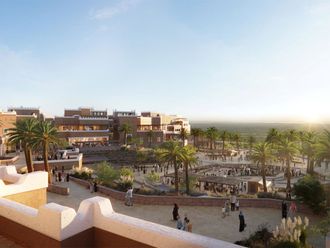Dubai: Tired of going to different travel sites and finding uniform hotel rates? Well, hotels are now trying to break the online stalemate by offering exclusive deals on their home pages.
Hoteliers decide on the room rates displayed on their websites and distribution channels, including traditional travel agents and travel portals, such as Expedia and Booking.com. The rates are almost the same across the board due to a rate parity agreement between hoteliers and their distribution channels.
“In general, hoteliers strive to attain rate parity across all distribution channels, with a trend of some favouring placing lower rates or packages on their own channels, such as their branded website,” said Jeff Strachan, general manager at Insights Management Consultancy, a business consultancy with a focus on tourism, hospitality and service industries.
Sofitel Abu Dhabi Corniche is one of the hotels trying to draw tourists by offering exclusive packages on its own website.
“…To those travellers who book directly through sofitel.com, they will have a chance to browse through exclusive brand offers. These are stay packages that can only be availed from the corporate website and is not offered through other online channels,” said Nael Al Wa’ary, Sofitel Abu Dhabi Corniche’s general manager.
Even during the low season, such as in July and August, the rates on travel portals are not necessarily lower compared to other distribution platforms.
“The fluctuation in prices on our website will be similar to that displayed by other online partners because of our rate parity principle,” Al Wa’ary said.
Driving prices down
Since hotels set the prices and not the travel portals, “it would be unlikely that [travel portals] would be accountable for driving rates down in any given market,” Strachan said.
The decision by hotels on where to distribute their room rates “is dependent on their strength, their location and their marketing budget,” he said.
Travel portals can help position hotels on the first page of the recommended hotel properties in a city.
“[Travel portals] spend a lot of money on search results — they have more marketing dollars [than hotels],” Strachan said.
Booking.com is offering hoteliers that sign up with it access to more customers from around the world and higher revenues. However, to be displayed on top comes at a premium.
Commissions
Hotels have to pay a commission. Commissions are paid on room rates and these vary between OTAs (online travel agents). Hoteliers typically pay a commission rate of 10 per cent on average.
Meanwhile, travel portals do not offer distinct advantages to travellers over other platforms, except that they can access most hotel brands on one site.
“As the offers through online channels are all the same, technically, there is no additional benefit for a traveller to book through other travel portals,” Al Wa’ary said.
The product comparison feature in travel portals has helped hoteliers to benchmark themselves against other industry players.
“In the past decade, the massive growth of online travel portals that serve not only as booking channels but also for travellers to get and share information has proved to be crucial for hoteliers. Offers shown on these portals provide us with insights on strategies, operations and outlook of other players in the industry. It’s a key benchmarking tool that is used for historical reference and future plans,” he said.












